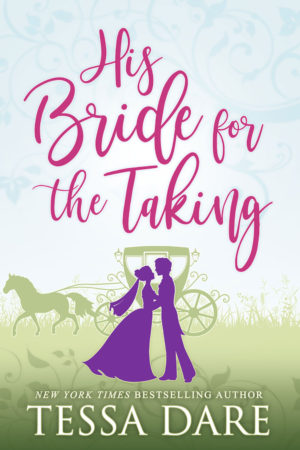|
Mommy Monday – It’s a girl thing.
|
Help! Maybe some of you who have children, or were once children, or still act a bit childish from time to time can give me some advice.
Dareling #1 has picked up on boy/girl differences. Not the anatomical differences- I’m still waiting for that conversation – but the (dubious) social differences. The things a kid learns at part-time daycare! Now every time we see a toy on TV or in the store, her immediate reaction is “That’s for girls!” or “That’s for boys!” Other commonly heard pronouncements: “Only girls like pink.” or “Princesses are only for girls.”
Now, I don’t know whether to make a big deal of this or not. I mean, obviously most of those things are more popular with girls than with boys, and the toys are certainly marketed to one or the other. It’s only natural she’d pick up on the cues. Is this just part of the learning process, as she starts to become aware of gender and identify with other girls? That’s not a bad thing, right? But how do I stop this before it becomes “Girls can’t be doctors” or “Only boys like power tools”?
Any thoughts?









November 5th, 2007 at 10:18 am · Link
Danica Patrick. Ashley Force. Amelia Earhart. There are a lot of women all through out history that have attributed some way to changing the way women are seen.
I’m not sure how old your child is. But you can just become a little more aware. “Look, do you hear the music, that’s Beethoven. Ah, listen to this one it’s Clara Schumann.”
Watch sports, there are girls entering the motorcross arena all the time. Female police officers. Female firefighters.
With my children when they said things like that, my response was why can’t you play with cars? Do you want one? Or just because someone said you can’t because you’re a girl doesn’t mean anything. If you really want to be a female professional skateboarder, “Go for it!”
November 5th, 2007 at 10:27 am · Link
My daughter have very distinct ideas of what was for boys and what was for girls at an early age. Not sure where she figured it out since she spent most everyday with another little boy at the babysitters.
At 2 she refused to wear the camo overalls her grandfather bought her. She said they were for boys, crossed her arms and stomped her foot. Broke his heart but I wasn’t going to force her to wear them.
I think simple little reminders that anyone – no matter boy or girl – can do anything they set their mind to. But I doubt it’s much to worry about right now. You’re aware of it and you’ll show her the way as she grows.
But it’s ironic that you’re now venturing into a field where the common belief is only women read and write romances. *g*
November 5th, 2007 at 11:03 am · Link
As a mom with two boys and a girl, let me say unequivocally that this gender differentiation stuff is NORMAL at your daughter’s age (3, right?) and that it’s nothing to worry about. It’s part of her process of self-identification. Eventually, these distinctions will become less important to her, but if she thinks pink is only for girls or cars are only for boys right now, chances are very low that she’ll carry that logic on very long.
My daughter (who is 8 now) is a very girly girl and her play is (and has always been) very much centered around girl-type toys, even though there are tons of boy toys in the house. I’m convinced that’s because she’s JUST THAT WAY and not because she doesn’t think it’s okay to play with “boy” toys. (And, in fact, she does sometimes play swords or cars or whatnot with her brothers, so she doesn’t totally diss the boy stuff. And the boys do the same in reverse, though they do seem to refuse unequivocally to play with baby dolls or Barbies.)
Buuuut, my daughter also has no sense whatsoever that there are JOBS only boys/girls can do. She has decided she wants to own a horse ranch with her BFF and be an astronaut (one time in space, then she’ll retire to the ranch :>). I think she believes girls can grow up to do any job they want because her dad and I have never modeled anything else to her or her brothers. She also doesn’t think boys can’t grow up to be ballet dancers or nurses (this stuff can be just as problematic in the other direction, remember!)
There’s a very simple Berenstain Bears book that I really liked reading to my kids when they were little because it addressed this very issue in a simple, easy to understand way. It’s called _He Bear, She Bear_.
November 5th, 2007 at 12:01 pm · Link
Oh, don’t sweat it! I have two little girlies and they’ve both gone through stages where they are VERY girly – other times, they want to pick up snails and play in the dirt.
The one who dresses like a princess every day after school and insists that boys only like gross things actually wants to grow up to be a doctor (and an Egyptologist…)
I think we need to be careful about swinging too far the other way and not letting our little girls be girly – there’s nothing wrong with an abundance of pink and froth when they’re little. 😉
November 5th, 2007 at 1:42 pm · Link
Back when my now 10yo dd was 4 she developed a taste for pink. It took me a while to figure out that if it was pink, her older brother would leave it alone.
Don’t worry too much about the gender thing. I alwasy just said “Yes, most girls like that *fill in the blan* better, but you don’t have to.”
November 5th, 2007 at 1:45 pm · Link
OMG!!! That’s my son. And he does learn at daycare (and tv). Once I took him to McDonald’s and we accidently got a ‘girl toy’. Do you know when we got home he threw it in the garbage all the while proclaiming, this is for girls. I don’t have a girl so I don’t have to make sure that as a male he knows he can be anything, but I still do have to assure HIM that no matter who tells him what, he can be anything he sets his mind to.
November 5th, 2007 at 3:49 pm · Link
One of the first books—I think it was a children’s book—was Elizabeth Blackwell’s life story (the first female doctor in America). I read it very, very young, or perhaps my mother read it to me. But that book left a huge impact on my life—I wanted to be like Elizabeth Blackwell for a LONG time: she broke down barriers and became a doctor besides everyone telling her she couldn’t.
Nellie Bly is a great person, too. I think she might have been a newspaper reporter during the turn of the century (?), but what I remembered about her is that she got arrested to report on how horrible women prisoners were treated.
If her daughter likes to read, I’d go for some of those books. Besides, a girl can be a feminist, wear pink, and still play with her Barbies.
November 5th, 2007 at 3:54 pm · Link
Thanks for the great, thoughtful comments, everyone! I agree that it’s mostly probably just a normal phase of her development. And I’ve got no problem with pink and Barbies and other “girly” stuff. I just don’t want it to cross the line into limitation, like you’ve all said.
What Terri said made me think, because honestly – I do consider myself to be writing books “for girls” (well, for women). I’m sure some men will read them (or parts of them, lol), but part of what I love about Romance as a genre is that it’s mostly a “by women, for women” thing. And it irks me no end when Romance gets slammed by feminists who don’t read it and think it’s all about subjugation.
I guess it’s all about knowing the distinction between affirming positive gender attributes and discouraging negative or restricting stereotypes.
November 6th, 2007 at 1:20 pm · Link
The whole gender issue is so fascinating to me. My daughter is definitely a girly girl, but she likes boy things. And my son is obsessed with trains, but that doesn’t stop him from asking to watch “Barbie, the Mermaid.” Yep, the boy likes to watch Barbie movies. Say it loud and say it proud.
I wholeheartedly agree with what everyone has said re: this being a stage of development. My daughter is six and doesn’t think sports are for boys and dancing is for girls. Of course, there are no boy dancers at her dance studio, despite there being a men’s locker room. As parents we have huge input on what our children see as “normal” and acceptable and I’m certain your daughter will feel great about whatever job she chooses.
November 11th, 2007 at 10:58 am · Link
I’m probably in the minority here (and late to join the conversation . . . I wandered over here to read about your sale), but I think you have to treat these statements of fact (“this is for girls”, etc.) the way you’d deal with any others that aren’t true. Which doesn’t mean to contradict them; it means to get kids to re-examine them.
My kids grew up in a house where I worked and my DH stayed home with them and did all the housework, all the childcare, all the stuff women usually do (except breast feed . . . heh . . . heh . . . heh). When my kids would throw one of those sorts of statements at me, I’d always say “who told you that?” Often it was another kid who got it from their sibs or parents or whatever. I just never wanted to see my kids limited by these attitudes so I encouraged them to ignore things like that and make decisions about what was right for them.
(They are well adjusted and opinionated at the ripe ages of 18 and 25 now.)
November 11th, 2007 at 11:48 pm · Link
Thanks for your comments, Gina – and thanks for dropping by! I see we’re chapter-mates, so I hope we’ll get a chance to chat at a meeting soon.